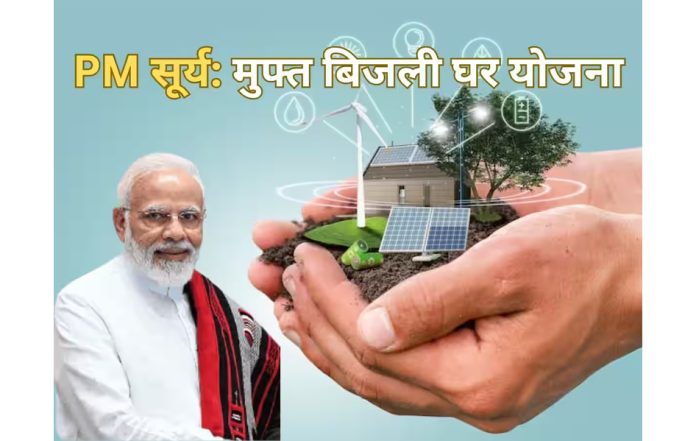The Government’s announcement to roll out the PM-Surya Ghar: Muft Bijli Yojna marks a significant milestone in the nation’s journey towards embracing renewable energy and fostering sustainable development. With an ambitious outlay of Rs 75,021 crore, this scheme aims to revolutionise the energy landscape by incentivizing the installation of rooftop solar panels in households across the country. At its core, the PM-Surya Ghar scheme is a testament to India’s commitment to combating climate change and reducing its carbon footprint. By promoting the adoption of solar power, the Government not only seeks to mitigate environmental degradation but also addresses the pressing energy needs of its citizens. The provision of up to Rs 78,000 in subsidies for the installation of solar plants, coupled with 300 units of free power every month for one crore households, underscores the Government’s dedication to making clean energy accessible and affordable to all.
One of the most commendable aspects of the PM-Surya Ghar scheme is its inclusivity. By offering financial assistance and support mechanisms, such as collateral-free low-interest loans, the Government ensures that even the most economically disadvantaged households have the opportunity to embrace solar energy. This democratisation of renewable energy empowers individuals to become active participants in India’s transition towards a greener future while simultaneously alleviating the burden of high electricity bills. Moreover, the emphasis on leveraging technology through the National Portal further enhances the accessibility and transparency of the scheme.
Furthermore, the scheme recognises the pivotal role of local governance institutions in driving change at the grassroots level. By incentivizing Urban Local Bodies and Panchayati Raj Institutions to promote rooftop solar installations in their respective areas, the Government fosters a collaborative approach towards sustainable development. This bottom-up approach ensures that the benefits of solar energy permeate every corner of the country, bridging the urban-rural divide and empowering communities to become self-reliant in meeting their energy needs. Another noteworthy feature of the scheme is the establishment of Model Solar Villages in each district, serving as exemplars of sustainable living and renewable energy adoption. These villages not only showcase the feasibility and benefits of rooftop solar but also inspire others to follow suit. By creating localised hubs of innovation and knowledge exchange, the Government catalyses a grassroots movement towards clean energy adoption, laying the foundation for a more resilient and sustainable future.
Additionally, the PM-Surya Ghar scheme recognises the economic potential of renewable energy entrepreneurship. It also presents significant employment opportunities. The large-scale installation of rooftop solar panels will require skilled personnel, leading to job creation in the installation, maintenance, and manufacturing sectors. This, in turn, stimulates the economy and promotes domestic production of clean energy solutions. This holistic approach to sustainable development not only addresses environmental concerns but also fosters socio-economic empowerment and inclusive growth. By providing financial incentives for innovative projects in rooftop solar and ensuring payment security for renewable energy service companies, the Government stimulates job creation and economic growth in the clean energy sector.
The solar rooftop scheme holds particular importance for Jammu and Kashmir, a region grappling with a persistent power crisis. If implemented diligently, it has the potential to address numerous challenges faced by people and offer invaluable assistance to the Government.
However, the success of the scheme will depend on effective implementation, robust monitoring mechanisms, and continued support from all stakeholders. By empowering households, the Government intends to lay the groundwork for a more resilient, equitable, and prosperous future.


